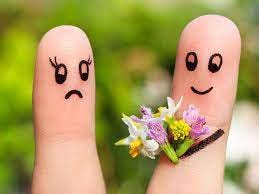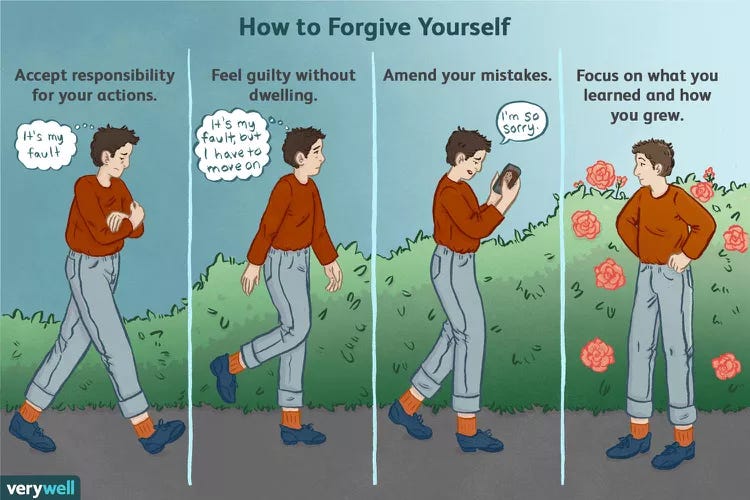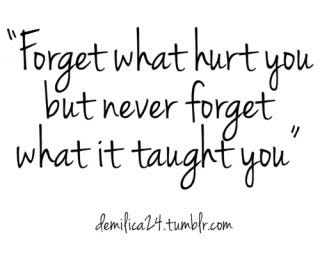To Forgive or Not?
It's In My Best Interest - So They Say #129

Several years ago, the actions of colleagues caused me considerable stress and sadness. Although common wisdom said forgive - I couldn’t. I thought we were friends and I was a valued employee.
Two incidents caused confusion and regret: the company changed course without including me and questioned my integrity, professionalism, and honesty.
From time to time, I came back to the idea of forgiveness because “forgiving someone is for your benefit, not theirs,” - they say.
But they also say
To forgive would be saying what happened was acceptable.
It wasn’t acceptable. I understood my part: I ignored red flags in my desire to make a place for myself and made a mistake, but their response was less than supportive.You can't forgive someone until they apologize.
There was no apology.When you forgive someone, you must also reconcile with them.
I wanted nothing to do with them.
To forgive, you must be completely free of your hurt and pain.
I was distressed for a long time and didn’t understand what happened.
Recently, I accepted that even though they could have handled the situation differently, they were making the best decisions they could at the time. So, I let it go.
But what about forgiving myself for my part in the situation? Because forgiving might allow healing to replace resentment - it might support my life and well-being.
For that reason, I decided to revisit the anger at me for not paying attention to the red flags that I saw.
The next step was self-forgiveness. The cartoon illustrates my path.
I accepted my role, released the guilt, apologized for my mistake, and learned to listen to my intuition - but it took a long time.
I don’t want negative emotions to rob me of energy and take a toll on my body, mind, and spirit. So my new plan is to
That’s the message from a new study in which people who practiced an assigned task of forgiving felt less anxiety and fewer symptoms of depression compared to a control group, as initially reported in The New York Times.
I found a way to set aside my anger and resentment regarding the situation. So important for people wishing to age well.
The Hour of Decision - “We must stop postponing our futures. We must become unstuck and act in the present moment.”
Surprise - “Shake up your routine. Step back for a moment. Zoom out. Take a break. Give yourself permission to break your own rules + change your schedule.It just might stir up your creative juices.”
If you want to contribute to my work, consider donating to the Alzheimers Association. This link takes you to their website. The choice is yours.






Thanks for sharing. As always I appreciate you sharing your wisdom.
Someone (famous I’m sure) is quoted as defining forgiveness as “giving up the need for revenge “. I strive to practice that. Revenge is carrying a burden and is ultimately self-inflicted pain and can lead to a viscous cycle. It doesn’t mean that I condone or forget what offended me.
I’m sure others define what forgiveness differently.
Nice. I find that in these forgiveness situations I might reach a phase in which gratitude takes over everything. Grudges are dropped. I remember the good parts of the relationship. And be thankful for those, despite I got hurt. When that point is reached, all the rest phases into the background.
In the end, I’m the only one who’s at loss when grudges drive my life.
However, this process cannot be forced. It might happen with time. As the sadness for what has happened leads me to see things differently. As I realise that I’m angry since I really cared about the person I had disagreements with. And that the rest does not really matter.
At the same time, this does not mean I might want the person in my life again. It is rather an acknowledgment in memory of the good experience we had together.
I wish you’ll do the best for you. Starting from forgiving yourself for the empathy you’ve played ;)